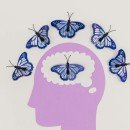
Modern medicine is no longer driven solely by stethoscopes, clinical observations, and trial-and-error experimentation. Today, a new and powerful tool is reshaping healthcare worldwide: big data. From massive patient records to genomic sequencing and real-time monitoring through wearable devices, the collection and analysis of vast quantities of information is enabling breakthroughs at an unprecedented pace. Big data is helping researchers spot patterns, doctors predict outcomes, and healthcare systems optimize resources. In short, medicine is being transformed from a reactive practice into a proactive science.
What Is Big Data in Medicine?
Big data in healthcare refers to the enormous and complex sets of information generated by hospitals, laboratories, research institutions, and even individuals. This data includes electronic health records, diagnostic imaging, clinical trial results, genetic information, and increasingly, data collected from wearable technologies like smartwatches or mobile health apps. The challenge is not just collecting this information, but organizing, analyzing, and interpreting it in ways that lead to actionable insights for improving patient care.
Preventing Before Treating
One of the most exciting applications of big data is predictive analytics. By analyzing past patient records and comparing them with current trends, healthcare providers can anticipate potential health issues before they become serious. For example, algorithms can predict the likelihood of heart disease, diabetes, or even certain cancers long before symptoms appear. This shift toward prevention rather than treatment has the potential to save millions of lives and billions in healthcare costs.
Tailoring Treatments to Individuals
Big data has also unlocked the era of personalized or precision medicine. Instead of prescribing a one-size-fits-all treatment, doctors can now use genetic data and advanced analytics to design therapies tailored to each patient’s unique biology. This is particularly transformative in cancer care, where targeted therapies based on genetic markers are producing remarkable results. Personalized medicine reduces trial-and-error prescribing, minimizes side effects, and increases the chances of successful treatment.
Genomics and Big Data
Genomic sequencing generates massive amounts of data, and big data tools make sense of it. Understanding how genes influence health is essential for tackling diseases with complex origins, such as Alzheimer’s or autoimmune disorders. With big data, researchers can quickly analyze thousands of genomes, looking for patterns that reveal which genes are linked to specific conditions. These insights are helping scientists develop targeted drugs and therapies that were unimaginable a generation ago.
Big Data in Drug Development
Developing a new drug is traditionally a long and expensive process, often taking over a decade and costing billions of dollars. Big data is accelerating this process by allowing researchers to sift through enormous datasets to identify promising drug candidates faster. Simulations and predictive models based on data reduce the need for endless trial-and-error experiments. Furthermore, clinical trials can be optimized by recruiting the most suitable participants, thus improving efficiency and success rates.
Improving Public Health Systems
Beyond individual patients, big data is transforming healthcare at a population level. Governments and health organizations can analyze epidemiological data to track disease outbreaks, allocate resources, and design more effective public health campaigns. During the COVID-19 pandemic, big data played a crucial role in predicting infection surges, monitoring vaccination rates, and evaluating the effectiveness of interventions. The ability to see patterns at scale helps policymakers make informed decisions that save lives.
Challenges of Big Data in Healthcare
Despite its promise, big data in medicine faces several challenges. Privacy concerns remain at the forefront: protecting sensitive patient information is critical in an era of frequent cyberattacks. Additionally, not all healthcare providers have the infrastructure to collect and analyze large datasets, creating a digital divide between advanced and developing healthcare systems. Data accuracy is another concern, as flawed or incomplete records can lead to misleading conclusions.
The Role of Communication in Global Research
Big data research is inherently international. Scientists and doctors across continents share insights, compare results, and collaborate on solutions. However, language barriers often complicate this process. That’s where translation services play a vital role. Whether it’s clinical trial documentation, patient consent forms, or medical research papers, accurate translation ensures that knowledge flows seamlessly across borders. Without these services, valuable insights could remain locked within a single language, slowing progress in global health innovation.
The Future of Medicine
The integration of big data into healthcare is still in its early stages, but the future is full of possibilities. Imagine a world where every patient carries a digital health profile that predicts illnesses years before they appear, where hospitals run on data-driven efficiency, and where drug development is reduced from decades to mere months. To get there, healthcare must balance innovation with ethics, ensuring that privacy, accessibility, and equality remain central to progress.
Conclusion
Big data is not just a tool, it is a revolution that is reshaping the way medicine is practiced, from the hospital bedside to the global stage. By turning raw information into actionable knowledge, it empowers doctors, patients, and researchers alike. The success of this transformation depends on responsible use, strong global cooperation, and the support of systems like translation services, which make knowledge universally accessible. As we continue to harness the power of data, one thing is clear: the future of medicine will be written in numbers, but measured in healthier lives.
Recent Posts

How Editing and Proofreading S...

How AI Tools Uncover Health Ri...

Advancing Health Science with ...

L’éthique de la recherche s...

Cómo la Investigación Cerebr...

Genetics Revolution by Unlocki...
Share it.
Links
© Copyright 2022 Impress-Network


